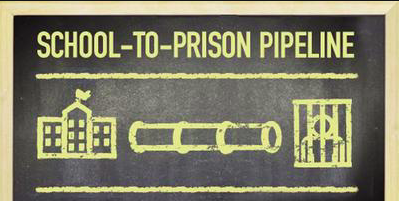If I had to explain what I have learned from this course in one sentence:
The education system in the United States is extremely flawed and unjust.
Being a college student and having gone through primary education, I feel guilty for not noticing all the flaws in the system earlier. Maybe it is because of my privilege. I am lucky enough to have access to any resource I could need. I have parents who are educated and enforce good study habits at home and are able to aid in my learning each day. Before this class, I didn’t notice how little I have struggled throughout my time in school. Though there have been times that have tested my mental fortitude from challenging assignments to petty middle school girls, there was never a time when I felt truly out of place. I guess I just thought that this is how school was for everyone. A place where you go to learn from books and learn from friendships and experiences. From this course I have learned that this is not the case for many American students. The school environment is a place of hardship, harassment, bias, struggle and persistent feeling of being out of place.
While I have never experienced any of these feelings, through the content of this course, I was able to learn a lot more about urban education and organizing and how they solve these problems. While broken communities and wounded school systems can be observed from the outside, the only way they can be solved is from within. The reason why organizing so often fails is not because of ill-intention but because of poor execution. Obama talks in his piece called “Why Organize?” about the purpose and process of organizing. Obama believes that “the only way communities [can] build long-term power is by organizing people and money around a common vision” (Obama, 1998, p.29). He goes on to explain that only “viable organization can only be achieved if a broadly based indigenous leadership” implements this change together (p.29) .
Obama’s ideas became clear in the organizing that occurs today to try to end the School-to-Prison Pipeline. Organizations such as the Urban Youth Collaborative, the Black Organizing Project and many more were formed due to the lack of power that communities felt they had. They strived to make a change from the bottom-up so that the reform would be reflective of the members requests and needs. After all, those who experience an issue know how it is affecting people firsthand.
After doing research and collecting data points, it became clear that I am not a member of these communities and do not experience these problems. I guess you could say in this moment I felt somewhat helpless. I had determined that communities must revitalize from within and I am on the outside. What can I do to help was a question that constantly came to mind. This made me think back to back when we were on campus having our intriguing bi-weekly class discussions. During these times, a classmate made me aware of the White-Savior complex. Maybe it was my ignorance or lack of education surrounding organizing, but I had never heard this term before. A White Savior is a white person who provides help to non-white people in a self-serving manner. This definition helped me realize that in order to make a change I must be aware of my privilege. This awareness allowed me to realize that the reason why I wanted to help make a change was not because it would make me feel good but because the system is unjust and needs fixing. That is undeniable.
So, from what was stated above, I guess you could say that this course was a time that forced me to finally open my eyes. I have been walking around oblivious to these urgent issues but now that I see them, I can never ignore them. Now that I see these issues, I must help to find a way to solve them. Back in the winter when I was registering for classes for second semester, I saw “Urban Education and Community Organizing” and thought “Wow, that’s something different and interesting.” Quickly, interest turned to excitement and excitement turned into passion. And, if I’ve learned anything in this course, it is that passion drives change.
